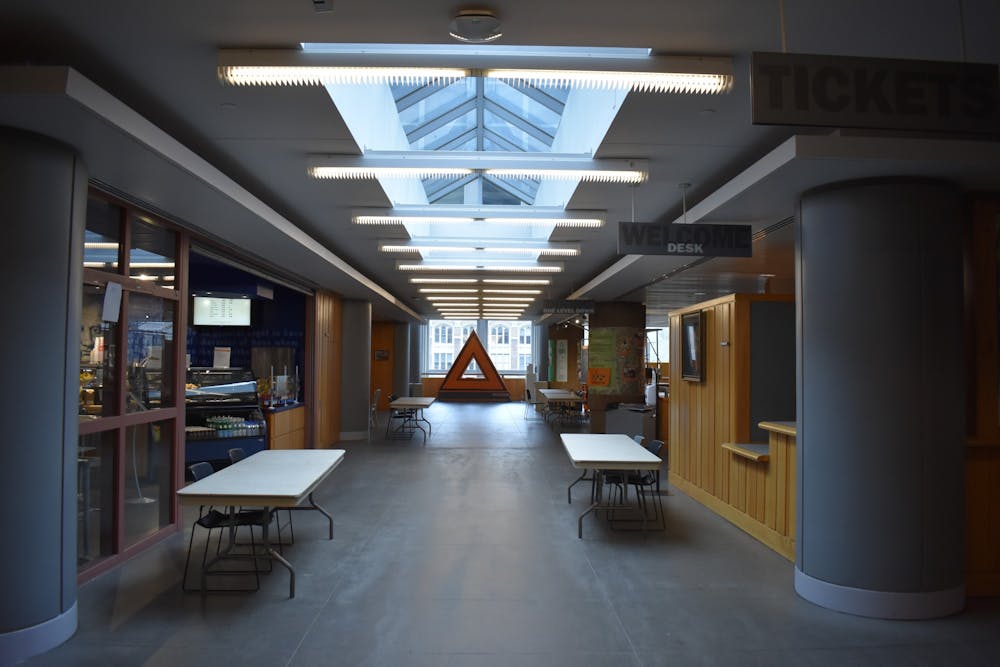On Monday, members of the Black Leadership Coalition (BLC) sent a “Climate Report” to the University Cabinet, concretizing recent student activism against anti-Black racism.
The report, which includes nearly 100 anonymous accounts of racism submitted by University students, calls on Nassau Hall to enact sweeping policy changes to improve quality of life for students of color and grapple with the University’s racist history.
The BLC’s demands come as the University solicits input on potential anti-racist action, with senior leaders across campus instructed to “identify specific actions that can be taken in their areas of responsibility to confront racism” by Aug. 21.
The BLC collected personal anecdotes through “Share Your Story,” a social-media campaign that began in late July. Students were encouraged to anonymously share their experiences to help the BLC obtain a full picture of campus life for students of color and lay the foundation for actionable demands.
BLC organizers also included posts from the popular Instagram page @blackivystories, which shares anonymous anecdotes of anti-Black racism on Ivy League campuses.
From the compiled experiences, the 38-page report draws out seven relevant themes — from “Use of Racial Slurs” to “Double Standards In Disciplinary Action” and “Racial Prejudice In The Classroom.”
In turn, the seven themes inform a list of 14 demands. Among them are calls for faculty and undergraduate diversification, a Black affinity space on campus, increased Counseling and Psychological Services (CPS) staff of color, an anti-racist curriculum, and divestment from police and law enforcement forces.
According to BLC organizer Jamie Goodwin ’21, the demands were guided by the anonymous stories and reflect a wide variety of voices within the community.

“In terms of demands or recommendations, we considered the voices of the Black community, other activist groups like [ChangeWWSNow], or demand letters that have been written like the Faculty Letter from July 4 and the letter produced by Black Alumnae featured on the Prince,” Goodwin wrote.
University Deputy Spokesperson Michael Hotchkiss explained that the administration is looking into the BLC’s report.
“We appreciate the students’ contribution to the important conversations taking place throughout the University community about how best to address critical issues of racism, equity and justice,” Hotchkiss said. “We will review these and other suggestions for change that have been made by members of the community.”
The BLC modeled its report in part after the July 2015 “Graduate Women in STEM Climate Report,” which sought to improve conditions for female graduate students in STEM concentrations. BLC organizer Kalyn Nix ’21 explained that the report seeks to “disrupt the culture of whiteness that thrives at Princeton through student testimonials.”

To protect the contributors’ identities, the anonymous stories have been redacted from the report’s public version, according to BLC leaders. The Daily Princetonian has been given permission, however, to share one story of a student recounting their experience with racism on a recent Bridge Year trip.
The ‘Prince’ could not independently verify their claims.
Bridge Year program director John Luria and assistant director Matt Lynn both deferred comment to Hotchkiss, who noted that the University was “unable to comment on individual student experiences.” He added that the University recognizes the difficulties students may face on Bridge Year “related to race, ethnicity, gender identity, sexual orientation, religion, socioeconomic background, and physical ability.”
“Student well-being is of the utmost importance to the University and Bridge Year continually strives to create learning experiences abroad that are healthy, safe, equitable and inclusive,” Hotchkiss added.
Having read and compiled each of the student accounts, BLC organizer Emily Cheston ’21 expressed hope the report would elicit a strong “emotional response” from the administration.
“Compiling the stories as a Black student, it’s impossible not to be moved,” Cheston said. “I think it has the power to do the same for those who can implement structural changes at the University.”
Although BLC organizers who spoke with the ‘Prince’ noted that their working relationship with the administration has been “positive” thus far, they do not count the report in itself as a victory.
“To be honest, I think many of those in the administration have openly agreed [about] the lack of diversity in academic departments and how that expands across the University, but also express feelings of confusion or lack of clarity around possible next steps,” Goodwin said.
“What I fear the most is the impact of these meetings and even the report on real institutional level change within the University,” Goodwin added. “There appears to not be very many clear pathways towards accountability within the University when it comes to racial diversity specifically.”
Yet, the student activists feel that the report affords a unique opportunity to instill change.
“I think for many of us, but especially in the Black community, we realized — or at least we were reminded — as we sat in our homes or ran to our jobs [while] watching the disproportionate death of our community in our hospitals, the unregulated evictions of our neighbors, and the senseless murder of our brothers that there truly was no way to cheat or beat the system,” Goodwin said.
“It didn’t matter if you were a valedictorian or a janitor, wealthy or poor, quiet or loud — your Black life would and will not be protected in this country. And if that’s really true, I think it means there is no better time to demand to be safe and to be heard,” Goodwin emphasized.
This Friday, BLC organizers are set to discuss their report with Vice President for Campus Life W. Rochelle Calhoun and Dean of the College Jill Dolan. The University Cabinet, a 23-member group of senior academic and administrative leaders, including both Calhoun and Dolan, will convene later this month to develop plans for implementing decided-upon anti-racist actions.








